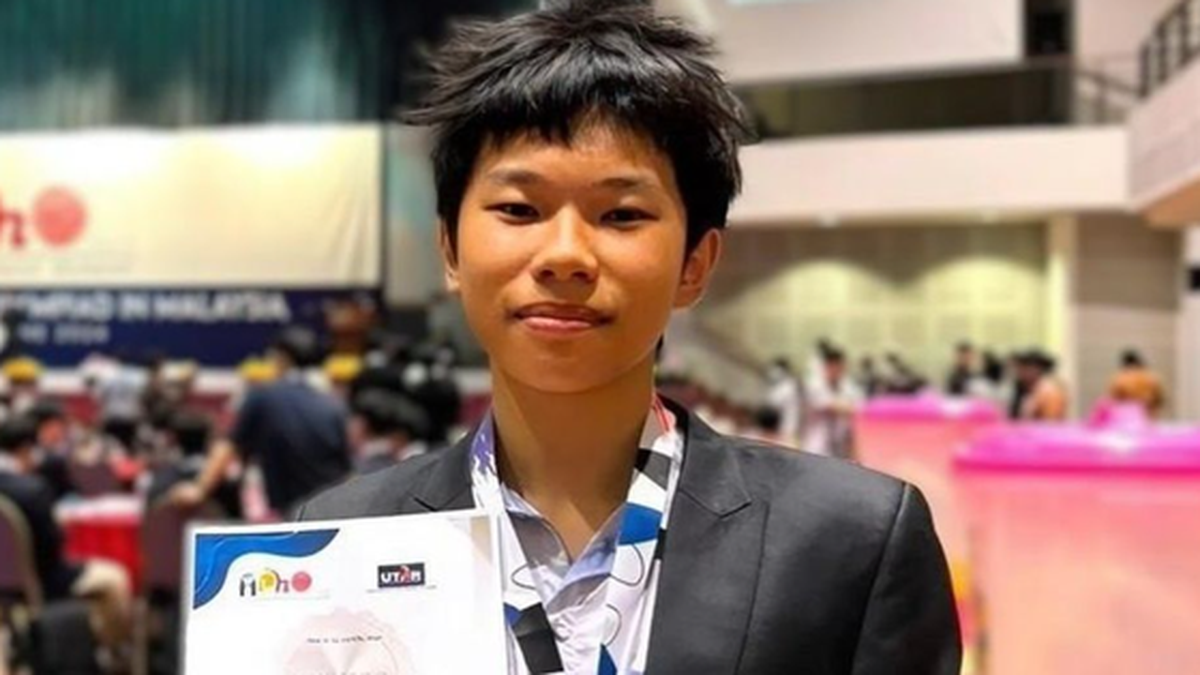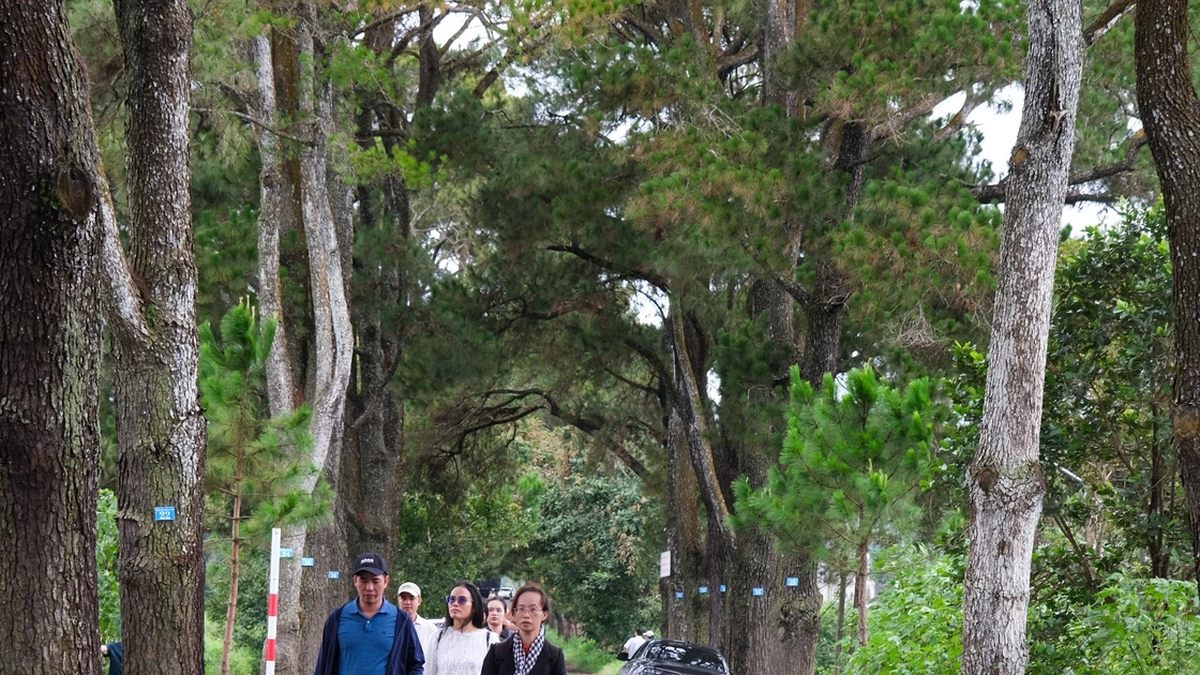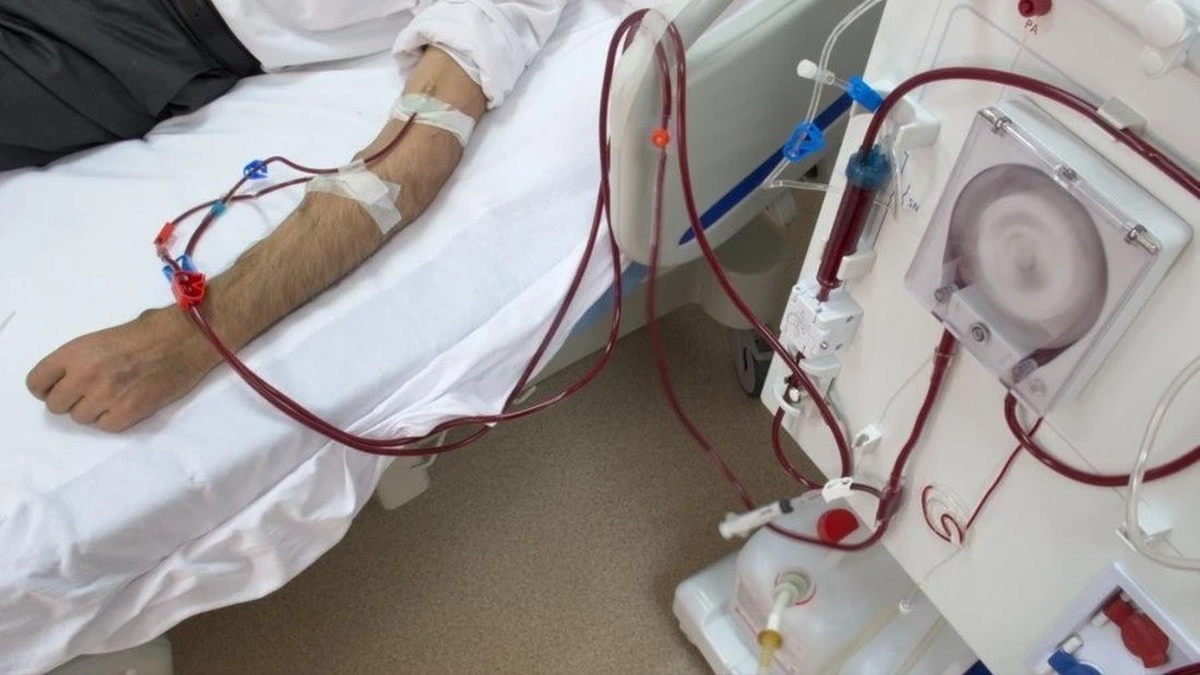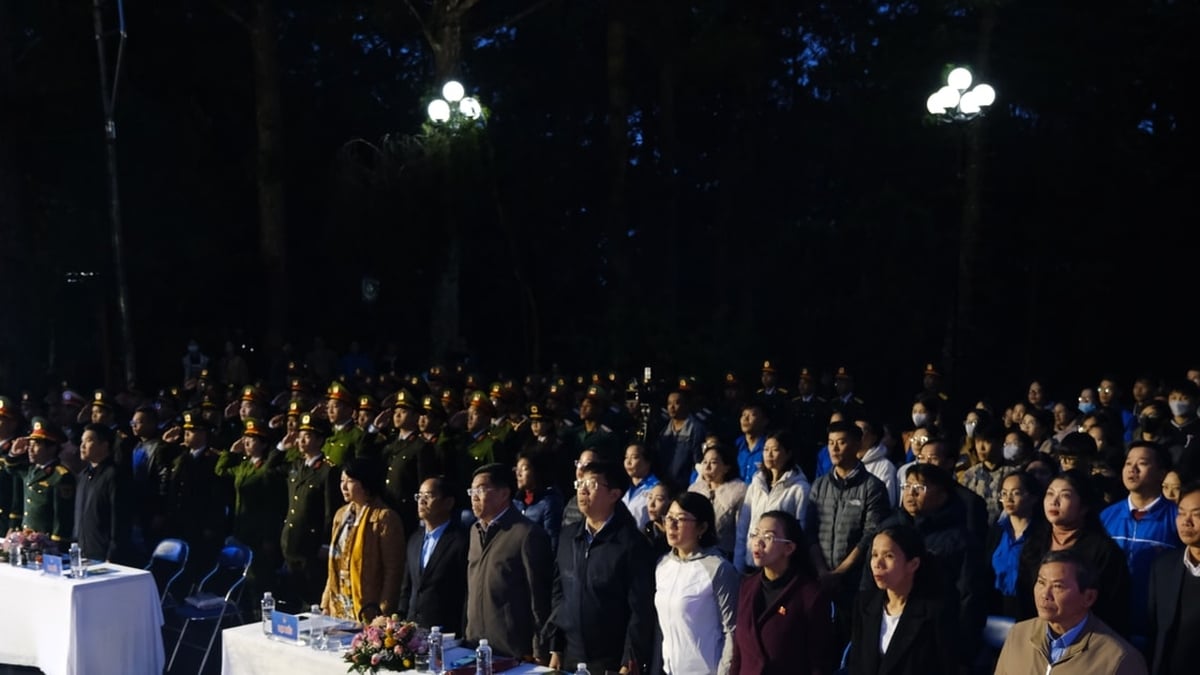The erratic weather in the summer makes children's throat mucosa vulnerable, reducing its protective ability, allowing viruses and bacteria to easily penetrate and cause recurrent tonsillitis, especially in children with a history of chronic tonsillitis or purulent tonsillitis.
 |
| To prevent tonsillitis in the summer, parents should give their children enough water, eat lots of green vegetables and foods rich in vitamins C, E, and A. |
Enlarged tonsils can cause snoring, sleep apnea, bad breath, and mouth breathing. High humidity creates favorable conditions for bacteria and fungi to grow, causing tonsillitis to recur many times.
Dr. Tran Thi Thuy Hang, Head of the Department of Otorhinolaryngology, Tam Anh General Hospital, Ho Chi Minh City, said that many children have to have tonsillectomy surgery due to tonsillitis recurring many times a year, but they often delay it because of their busy school schedules or difficulty with post-operative care.
The number of children undergoing tonsillectomy in recent months at Tam Anh General Hospital has increased by more than 50% compared to the previous month, mainly in the age group of 10 to 12 years old. This is the time of year when tonsillectomy and recurrence are at their highest.
Many parents worry that tonsillectomy will reduce their child's resistance. However, tonsils are only a small part of the body's immune system. When chronic tonsillitis recurs many times, pus and bacteria accumulate, the tonsils no longer have a protective function but become a source of chronic inflammation, negatively affecting the child's health. Tonsillectomy helps children reduce minor illnesses, eat better, sleep more deeply and develop better.
In the case of VMK (7 years old), who had tonsillitis many times, long-term treatment with medication did not cure him, he was hospitalized with high fever, sore throat and tonsil abscess, a common complication when chronic tonsillitis is not completely treated. The child was incised to drain the pus, treated with antibiotics and had tonsillectomy surgery. His health was stable and he recovered quickly after surgery.
Similarly, LHTA (5 years old) had tonsillitis that recurred nearly 10 times a year, causing difficulty breathing, snoring, and malnutrition. After endoscopy and diagnosis of hypertrophic tonsillitis, the child was indicated for tonsillectomy and adenoidectomy using modern Coblator plasma technology. After 24 hours, the child recovered well, ate normally, and continued to be monitored for health.
Dr. Hang emphasized that not all children with tonsillitis need surgery. Surgery is the last resort when the inflammation recurs more than 5 times a year, enlarged tonsils cause airway obstruction, sleep apnea, peritonsillar abscess, or when medical treatments are ineffective.
Also about this disease, according to Associate Professor, Dr. Nguyen Thi Hoai An, Director of An Viet Hospital, tonsils are two lymphoid masses located in the throat wall, functioning as the body's first immune barrier, helping to prevent the invasion of bacteria and viruses.
However, when tonsils are repeatedly inflamed, they become a breeding ground for bacteria, causing many dangerous health complications such as otitis media, sinusitis, glomerulonephritis, rheumatism, and even affecting respiratory function and sleep quality.
Tonsillitis can be caused by bacteria, viruses or environmental factors such as air pollution, erratic weather, and decreased resistance. This disease is not only found in children as many people mistakenly believe, but adults can also get it and need treatment if the disease progresses for a long time.
Associate Professor, Dr. Nguyen Thi Hoai An emphasized that not all cases of tonsillitis require surgery. The indication for tonsillectomy must be given by a specialist after a thorough examination, especially in situations such as tonsillitis recurring 5-6 times per year, causing systemic complications or seriously affecting daily life; enlarged tonsils causing airway obstruction, difficulty eating and drinking, sleep apnea; prolonged tonsillitis causing bad breath, suspected malignant lesions.
With the development of modern medicine, tonsillectomy is performed using modern methods to help reduce pain, limit bleeding, shorten recovery time and minimize the risk of complications. However, surgery must be performed at reputable medical facilities, with a team of highly qualified doctors to ensure safety.
After tonsillectomy, patients need to rest properly and limit talking in the first few days to protect the surgical wound. In addition, patients need to follow some important notes such as keeping their teeth clean to prevent infection, eating soft foods such as porridge, soup, boiled potatoes, noodles; absolutely avoid spicy, hot, cold foods, greasy foods, alcoholic beverages, carbonated drinks or stimulants such as coffee.
Adding filtered water, fresh milk, yogurt or fruit juice also helps increase nutrition and support the recovery process more effectively.
If not examined and treated promptly, this seemingly simple disease can seriously affect health, daily activities and quality of life. Therefore, when the body shows prolonged abnormal signs, the patient should go to a medical facility for examination instead of self-treating at home with non-prescription drugs.
To prevent tonsillitis in the summer, parents should give their children enough water, eat lots of green vegetables and foods rich in vitamins C, E, A; limit cold foods; let children gargle with saline solution daily and avoid overusing air conditioning, maintaining room temperature from 26-28 degrees Celsius.
Source: https://baodautu.vn/gia-tang-tre-phau-thuat-cat-amidan-mua-he-d318068.html





































































![[Photo] National Assembly Chairman Tran Thanh Man receives Chairman of Morocco-Vietnam Friendship Association](https://vphoto.vietnam.vn/thumb/402x226/vietnam/resource/IMAGE/2025/7/26/b5fb486562044db9a5e95efb6dc6a263)

































Comment (0)